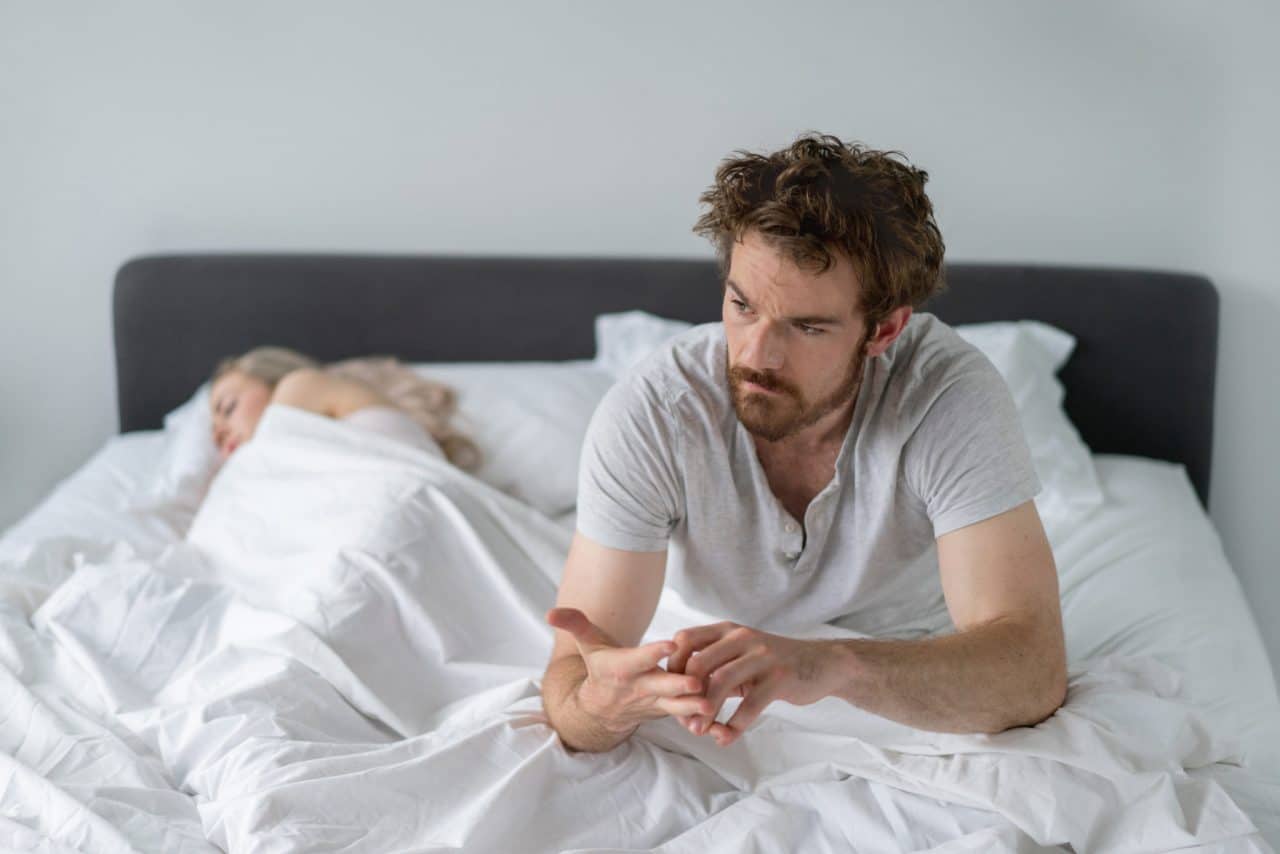- Approximately 30 million Americans have a sleep disorder called sleep apnea.
- Many millions more are pre-disposed and have a high risk of developing the illness.
- Those with apnea literally stop breathing in their sleep often hundreds of times during the night.
How Does It Occur?
- During normal sleep, throat muscles relax.
- If the throat is crowded, the airway may collapse during sleep. Airflow stops and
the blood oxygen level drops, which causes the brain to wake up. - If you have sleep apnea, this cycle may repeat hundreds of times during the night while you have no idea it is happening.
What Are the Common Symptoms?
- Fatigue and Tiredness during the day.
- Loud snoring.
- Waking up choking or gasping.
- Not feeling rested in the morning or satisfied with a night’s sleep.
- A strong desire to take a daily afternoon nap.
- Unexplained accidents or errors.
How Serious Is It?
- Sleep apnea is a potentially life-threatening condition.
- Undiagnosed severe sleep apnea can cause irregular heartbeats, high blood pressure, leg swelling, heart attack, stroke, or a cardiac arrest during sleep.
- Increased daytime sleepiness poses a serious risk of automobile accidents, impaired functioning in the workplace and in personal relationships.
- Untreated sleep apnea tends to progressively worsen and can cause partial or complete disability and death.
How Is It Diagnosed?
- An overnight sleep study, called polysomnography, is usually done to diagnose sleep apnea.
- The sleep study measures your heart rate, chest movement, air flow, and blood oxygen levels while you sleep.
- Other sleep disorders that cause poor sleep may be detected with a sleep study as well.
- The test involves no pain and is covered by insurance.
Non-Surgical Treatment of Sleep Apnea
Continuous Positive Airway Pressure
The most common nonsurgical treatment for sleep apnea is Continuous Positive Airway Pressure (CPAP) which is applied through a nasal or facial mask worn while the patient is sleeping. It creates a flow of air under pressure as the patient inhales that is strong enough to keep air passages open. CPAP should be used every night.
What Are the Advantages of CPAP?
CPAP is an effective means of treating sleep apnea and snoring. It keeps airway passages open which prevents pauses in breathing and helps patients get better sleep. This, in turn, reduces daytime sleepiness, fatigue and other sleep apnea-related health problems such as high blood pressure, heart disease, diabetes, and stroke.
What Are the Disadvantages of CPAP?
The CPAP device needs to be used every night. Some patients complain of mask discomfort, nasal congestion, and nose and throat dryness when using CPAP. Others find the device to be too constrictive and cumbersome, particularly when traveling. Unfortunately, these complaints sometimes lead to inconsistent use or abandonment of the device altogether.
What Are the Alternative Treatments For Sleep Apnea?
Lifestyle changes including weight loss and exercise can help to improve sleep apnea and its related health problems. Sleep positioning and oral appliances have also been found to be effective. In cases when non-invasive treatments fail, a surgical solution might be necessary. These alternative methods can also provide the same benefits as CPAP, such as reduced daytime sleepiness and fatigue, high blood pressure, heart disease, diabetes and stroke. Your otolaryngologist will be able to advise you on the treatment options.
Oral Appliance
Oral appliances are one of the treatment options for snoring and obstructive sleep apnea (OSA). These devices are similar to mouth guards or orthodontic retainers that are worn in the mouth during sleep. They are designed to prevent soft tissue in the airway from collapsing and causing obstruction. Oral appliances work by repositioning the lower jaw to a more forward position and/or pulling the tongue forward. These appliances can be used alone or in combination with Continuous Positive Airway Pressure (CPAP) or surgery.
These appliances are less cumbersome than CPAP and patients are typically more compliant with use. However, they can cause problems with excessive salivation, dry mouth and temporomandibular joint discomfort. Oral appliances are typically obtained through dentists or orthodontists.
Surgical Treatments
Nasal Surgery
Increased nasal congestion has been shown to contribute to snoring, disrupted sleep, and even sleep apnea. It is also a leading cause of failure of medical treatments for OSA, such as CPAP or an oral appliance. Nasal obstruction may result from many causes including allergies, polyps, deviated septum, enlarged adenoids, and enlarged turbinates. Medical treatment options, such as a nasal steroid spray or allergy management, may be helpful in some patients. Some patients may require nasal surgery to straighten the septum, shrink turbinates or remove polyps.
Tonsillectomy and Adenoidectomy
The tonsils and adenoids may be the sole cause of snoring and sleep apnea in some patients, particularly children. In children, and in select adults, with OSA and enlarged tonsils/adenoids, tonsillectomy & adenoidectomy alone can provide excellent resolution of snoring, sleep apnea, and associated symptoms.
Uvulopalatopharyngoplasty (UPPP)
In many patients with OSA, airway narrowing and collapse occur in the area of the soft palate (back part of the roof of the mouth), tonsils, and uvula. In this case, patients may benefit from uvulopalatopharyngoplasty (UPPP). This is a surgery that is aimed at preventing collapse of the tissues at the back of the upper throat. UPPP is most successful in patients who have large tonsils, a long uvula, or a long, wide palate. A UPPP operation is performed under general anesthesia in a hospital setting. The tonsils and uvula are removed and the palate is trimmed. UPPP may require an overnight stay in the hospital to monitor breathing. Many patients return to school/work in approximately one week and return to normal diet and activity at two weeks. Throat discomfort, particularly with swallowing, is common in the first two weeks and usually managed with medications for pain and inflammation.
Call Midwest ENT Centre at (636) 441-3100 for more information or to schedule an appointment.
